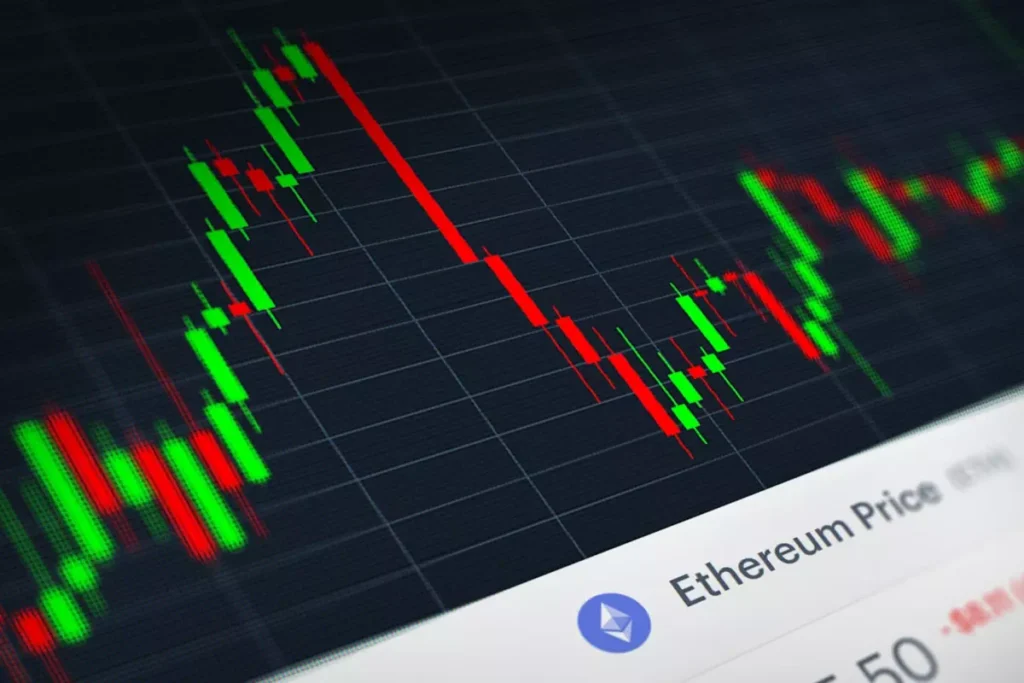The cryptocurrency market is renowned for its exhilarating highs and, sometimes, its dramatic lows. The crypto world is witnessing one of its downward phases, stirring concern and curiosity among investors and spectators alike. This dip is not an anomaly but part of the intricate dance of factors influencing the highly volatile cryptocurrency market. In this article, we’ll delve into the various elements contributing to the current downturn, offering insights into the complex interplay of economic, technological, and psychological factors defining the crypto landscape.
Understanding Cryptocurrency Market Volatility
The Nature of Cryptocurrency Markets
Cryptocurrencies are known for their rapid price fluctuations, with values that can swing wildly daily. Unlike traditional financial markets, crypto markets operate 24/7, across the globe, without a centralized regulatory body. This lack of oversight and constant trading results in high volatility, making cryptocurrencies alluring for potentially high returns and risky in terms of investment stability.
Historical Volatility of Digital Currencies
Historically, the crypto market has undergone numerous cycles of boom and bust. From the meteoric rise of Bitcoin in 2017 to its sharp decline in the following year, these patterns have painted a complex picture of digital currency’s reliability and profitability.
Key Factors Influencing the Current Crypto Downturn
Economic Downturns and Global Financial Instability
Recent economic downturns across the globe have led to increased uncertainty in financial markets, including crypto. As traditional assets like stocks and bonds suffer economic strain, cryptocurrencies have similarly been impacted, reflecting broader market fears.
Regulatory Changes and Government Interventions
Governments around the world are beginning to impose stricter regulations on cryptocurrencies. From bans on trading to restrictions on mining, these regulations can lead to significant disruptions in the crypto market, often resulting in lower prices.
Technological Challenges and Security Concerns
The blockchain technology underlying cryptocurrencies is still in its developmental stage, and any technological setbacks or security breaches can lead to a loss of investor confidence and subsequent market drops.

The Impact of Global Events on Cryptocurrency
How Geopolitical Tensions Affect Crypto Markets
Geopolitical events can create uncertainty that affects all financial markets, including cryptocurrencies. For instance, trade wars or international sanctions can prompt investors to withdraw from riskier assets like crypto, leading to price declines.
The Role of Pandemic Recovery in Economic Shifts
The global economic recovery post-pandemic has been uneven, affecting investment in cryptocurrencies. As economies struggle to stabilize, the crypto market reflects this turbulence.
Investor Behavior and Market Sentiments
The Psychology of Crypto Investors During Market Lows
Market lows can lead to panic selling among investors, further driving down prices. Understanding the psychology behind these sell-offs can provide insights into when the market might turn around.
The Impact of Public Sentiment and Media on Crypto Prices
Public perception and media coverage significantly influence crypto prices. Negative news can scare investors away, while positive news can lead to increased buying and higher prices.
The Role of Institutional Investors in Crypto
Entry and Exit of Large-scale Investors
The involvement of institutional investors can stabilize the crypto market, but their exit during downturns can also exacerbate declines.
Institutional Influence vs. Retail Investors
While retail investors drive much of the crypto market’s volume, institutional decisions often disproportionately impact the market’s direction.
Technological Advancements and Setbacks
Innovations Driving Growth
New blockchain technologies and applications can drive interest and investment in the crypto market, potentially leading to higher prices.
Tech Failures Leading to Loss of Confidence
Conversely, when technology fails—such as through bugs or hacks—confidence can plummet, dragging market prices down.

Comparison with Traditional Financial Markets
Similarities and Differences in Market Dynamics
While there are similarities between crypto and traditional markets, the inherent differences in regulation, technology, and market structure provide unique challenges and opportunities for crypto investors.
Lessons from Traditional Financial Crises
Studying past financial crises in traditional markets can offer valuable lessons for navigating the volatile waters of the crypto market.
The Future of Cryptocurrency
Predictions and Trends
While the future of cryptocurrency is uncertain, trends such as increased adoption, technological advancements, and potential regulatory clarity could stabilize and potentially increase market values.
Strategies for Navigating Future Downturns
Investors can adopt various strategies to manage risks during downturns, including diversification, setting stop-loss orders, and staying informed about market trends and news.
Conclusion
A complex blend of factors influences the current downturn in the cryptocurrency market. Understanding these can help investors make informed decisions and weather the storms of crypto volatility.
FAQs?
What causes cryptocurrencies to drop in value?
Cryptocurrencies can drop in value due to economic downturns, regulatory changes, technological issues, and shifts in investor sentiment.
Can economic recessions impact cryptocurrency?
Yes, economic recessions can negatively impact cryptocurrency markets like other financial markets, leading to reduced investment and lower prices.
How do government regulations affect cryptocurrency?
Depending on their nature, government regulations can either stabilize or destabilize the crypto market. Stricter regulations often lead to short-term price falls.
What role do technological advancements play in crypto valuation?
Technological advancements can increase the value of cryptocurrencies by improving security, efficiency, and the overall appeal of crypto as an investment.
How should investors react during crypto market downturns?
Investors should consider maintaining a balanced and informed approach, avoiding panic selling, and potentially buying the dip if they believe in the long-term viability of cryptocurrencies.





